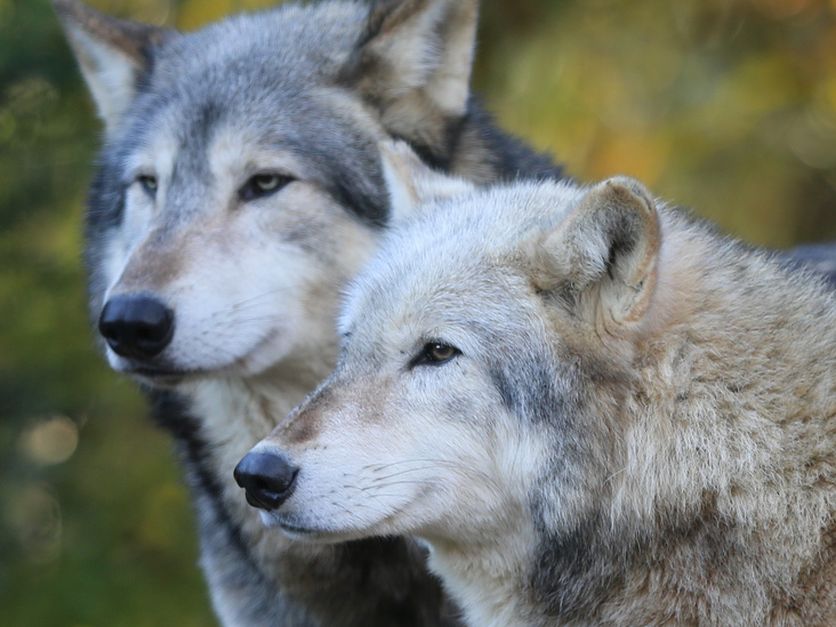A federal judge has reversed the Trump administration's decision to delist the gray wolf under the Endangered Species Act, restoring protections for an animal often at odds with ranchers and livestock.
In the ruling Thursday, U.S. District Judge Jeffrey White said the Department of Interior’s Fish and Wildlife Service “relied on two core wolf populations to delist wolves nationally and failed to provide a reasonable interpretation of the ‘significant portion of its range’ standard” when it delisted the wolf throughout the continental United States in October 2020.
Environmentalists celebrated the move, with the Natural Resources Defense Council saying the decision “restores federal protections for wolves outside the Northern Rockies that had been taken away by the Trump Administration.”
"The service has sought every legal loophole they could find to avoid putting forward a national plan to recover the species, and they have been slapped down repeatedly,” Sylvia Fallon, NRDC’s senior wildlife director, said in a statement. “It is well past time for the service to do what it was required by law to do from the start and develop a science-based plan to recover one of the most iconic species in North America."
Collette Adkins, carnivore conservation director at the Center for Biological Diversity, echoed those sentiments, saying she hoped “this ruling finally convinces the Fish and Wildlife Service to abandon its longstanding, misguided efforts to remove federal wolf protections. The agency should work instead to restore these ecologically important top carnivores to places like the southern Rockies and northeastern United States.”
Looking for the best, most comprehensive and balanced news source in agriculture? Our Agri-Pulse editors don't miss a beat! Sign up for a free month-long subscription.
But the decision has farmer and rancher advocates disappointed.
Kaitlynn Glover, executive director of the Public Lands Council, equated the ruling to “judicial activism.” In an interview with Agri-Pulse, she argued gray wolves in the United States have experienced an “incredible population rebounding.”
“I certainly hope the administration will seek to defend this rule and defend this delisting and then be able to resume their work on other species in partnership with ranchers to be able to bring greater biodiversity, greater recovery back to many other species in the future,” she said.
PLC, the National Cattlemen’s Beef Association, and other interests were unsuccessful in their pursuit of intervenor status in the cases that contributed to Thursday’s ruling.
In his decision, White said he acknowledged “there will be some disruption if the final rule is vacated.” Glover said that disruption could include more limited management tools for producers “manifesting in significant livestock losses and interactions with humans as well.”
“While we were disappointed not to be able to intervene prior to this decision, we absolutely intend to continue to defend this delisting both in courts but also in the regulatory space as well,” she said.
For more news, go to www.Agri-Pulse.com.


